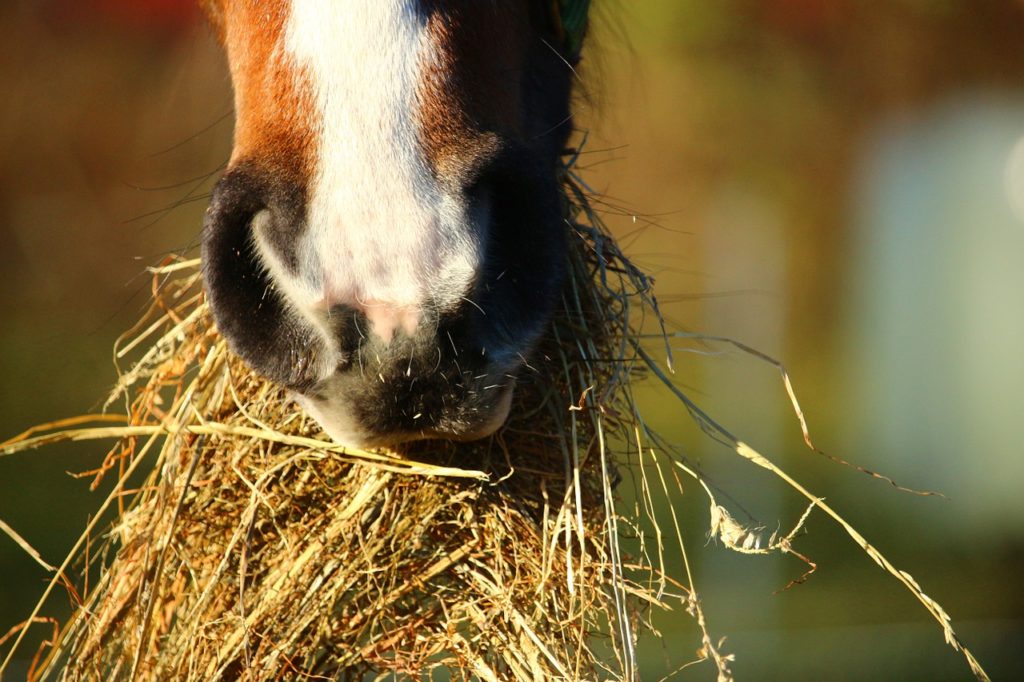There are many people who have a passion for horses but don’t want to pursue the traditionally heard of job avenues, riding and training. Within the equine industry, there are a myriad of job opportunities out there that don’t involve riding – and they’re looking for the perfect people! Here are five different types of jobs in the horse industry that you may not have considered.
1. Broodmare Manager. The routine for a broodmare manager on a typical day includes assisting with veterinary exams, attending foalings, and being available for emergencies. The routine tends to include opportunities to manage veterinary health records and staff members. A majority of broodmare managers work within the thoroughbred industry, with the greatest concentrations in Lexington, Kentucky and Ocala, Florida. Transitioning between different breeds comes with ease in this type of job. A college degree isn’t required for this job, but it can be useful. General salary can vary depending on the size of the farm, type of horse breed, and the rate in the particular area. According to SalaryList, there is an average annual salary of $43,000 for a broodmare manager and $26,313 for an assistant broodmare manager.
 Photo by Erdenebayar Bayansan/Pixabay/CC.
Photo by Erdenebayar Bayansan/Pixabay/CC.
2. Stallion Manager. Stallion managers have similar responsibilities compared to broodmare managers, but focused on the care and handling of stallions. A typical day can range from routine care, handling vet and farrier appointments, scheduling breeding, to completing paperwork – as well as overseeing farm staff and organizing the day. This job does not require a college degree, but it is recommended to have general knowledge. Hot spots to be a stallion manager are in Lexington, Kentucky and Ocala, Florida. According to Glassdoor, the average annual salary is $41,535 which can vary with region and duties assigned.
3. Bloodstock Agent. A bloodstock agent is an equine professional who buys and sells thoroughbred horses on behalf of their clients. With each sale, they receive a commission. They can specialize in racing stock, breeding stock, or both areas. Some agents may focus on selecting prospects, or they may work with clients to seek horses for resale. To be at the top of your game as a bloodstock agent, it is crucial to have a general understanding of racing pedigrees. Duties include bidding on horses at the auction ring, advising clients on breeding plans for their broodmares, and even facilitating the bookings of the mares. There is an importance of having the availability to travel to multiple countries in order to find the best prospects. Unless the agent is under contract, they do not receive a general salary but rather a commission on sales. Experienced agents can make $80,000 to over $100,000 annually, though when first starting out earnings are expected to be approximately $30,000.
 Photo by Clarence Alford/Pixabay/CC.
Photo by Clarence Alford/Pixabay/CC.
4. Jockey Valet. A jockey valet attends to jockeys at racetracks, performing various services. They saddle horses and insert lead pads in saddle pockets to meet weight specifications. They also ensure that the horses have the proper equipment needed to race, including their numbers and proper colors. Additionally, they assist the jockey to be dressed for the race. Following the race, they unsaddle the horse and return the equipment to the locker room. This job is for someone dedicated to the racehorse life and wanting to ensure these horses are receiving proper care. The average salary for a jockey valet in the US is $27,070, according to Comparably. 100% of jockey valets report receiving an annual bonus.
5. Equine Nutrition Specialist. An equine nutrition specialist works in a variety of environments with different types of people. They are set in a place to be able to communicate with owners, manufacturers, and dealers. Skills needed for this position include a good grasp on math and computers, with an understanding of communication skills. Equine nutritionists are hired in order to get horses to be in the best possible physical state, providing food and supplemental designs specific to that horse. Tasks include establishing feed and supplement regimens for the prospective client, determining proper feeding in order to heal from ailments, and understanding nutrition requirements for different horse breeds. According to Chron, the average salary ranges between $35,000 and $40,000.
If you are in the equine industry looking for a new job, or possibly a career change, OR if you’re considering entering the equine industry but don’t want to ride professionally, we hope these ideas spark your creativity and open up your eyes to new career options.
Go Jumping – and job hunting!

